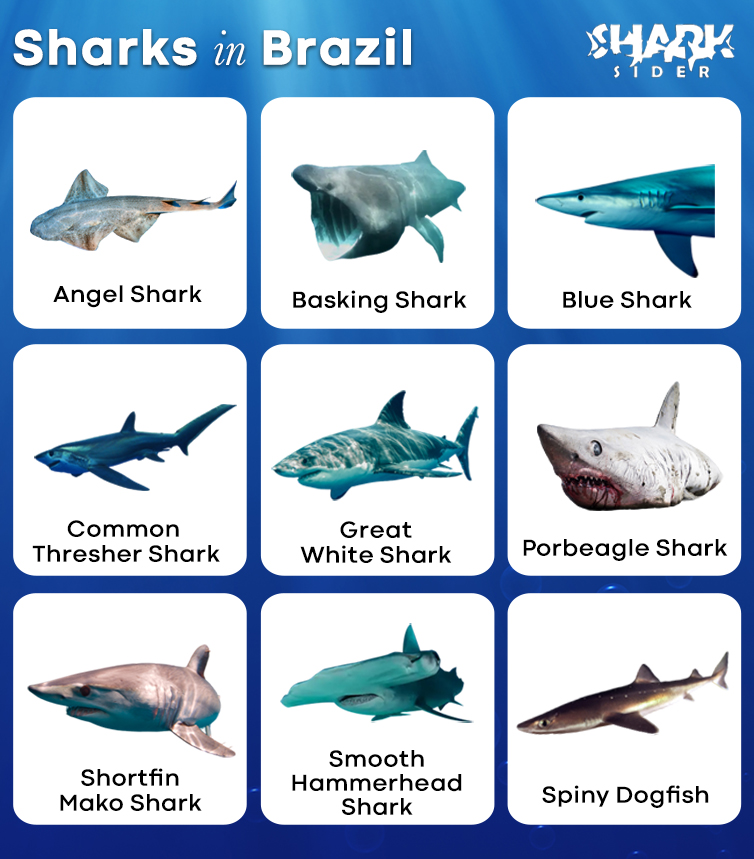Brazil is home to a wide variety of sharks and is ranked 9th throughout the world when it comes to shark attacks. The most dangerous species in the waters of Brazil include the tiger shark, the great white shark, and the bull shark. The bull shark is especially noteworthy as it often swims into freshwater.
Most of these take place in the state of Pernambuco. However, it is worth noting that fatalities are rare, and if a shark is sighted in the ocean adjacent to a beach, one should not go swimming that day.
List of the Different Types of Sharks in Brazil
| Species | Maximum Size | Aggressiveness |
| Angel Shark | 4-7 feet | Moderately aggressive |
| Basking Shark | 23-30 feet | Not aggressive |
| Blue Shark | 6-11 feet | Not aggressive |
| Common Thresher Shark | 12-18 feet | Not aggressive |
| Great White Shark | 11-16 feet | Highly aggressive |
| Porbeagle Shark | 6-12 feet | Not aggressive |
| School Shark | 6-7 feet | Not aggressive |
| Shortfin Mako Shark | 6.5-9.5 feet | Highly aggressive |
| Small-spotted Catshark | 1.5-3 feet | Not aggressive |
| Smooth Hammerhead Shark | 8-12 feet | Not aggressive (but are potentially dangerous) |
| Spiny Dogfish | 2.5-3.5 feet | Not aggressive (due to their small size) |
| Starry Smooth-hound | 4-4.7 feet | Not aggressive |
Recent Cases of Shark Attacks in Brazil >>
FAQs
1. Have there been shark attacks in Recife?
An unusual series of shark attacks occurred off Recife, Pernambuco, Brazil, from September 1992 to September 2006. There were a total of 47 incidents, 17 of which were fatal.
2. Are there bull sharks in Brazil?
Yes, bull sharks have been spotted in saltwater habitats like the Atlantic and freshwater ones like the Amazon.
3. Can you go shark diving in Brazil?
Yes, in places like Fernando de Noronha on the country’s eastern coast.
4. Are there great white sharks in Brazil?
While rare, great whites can sometimes be seen in Brazilian waters.

